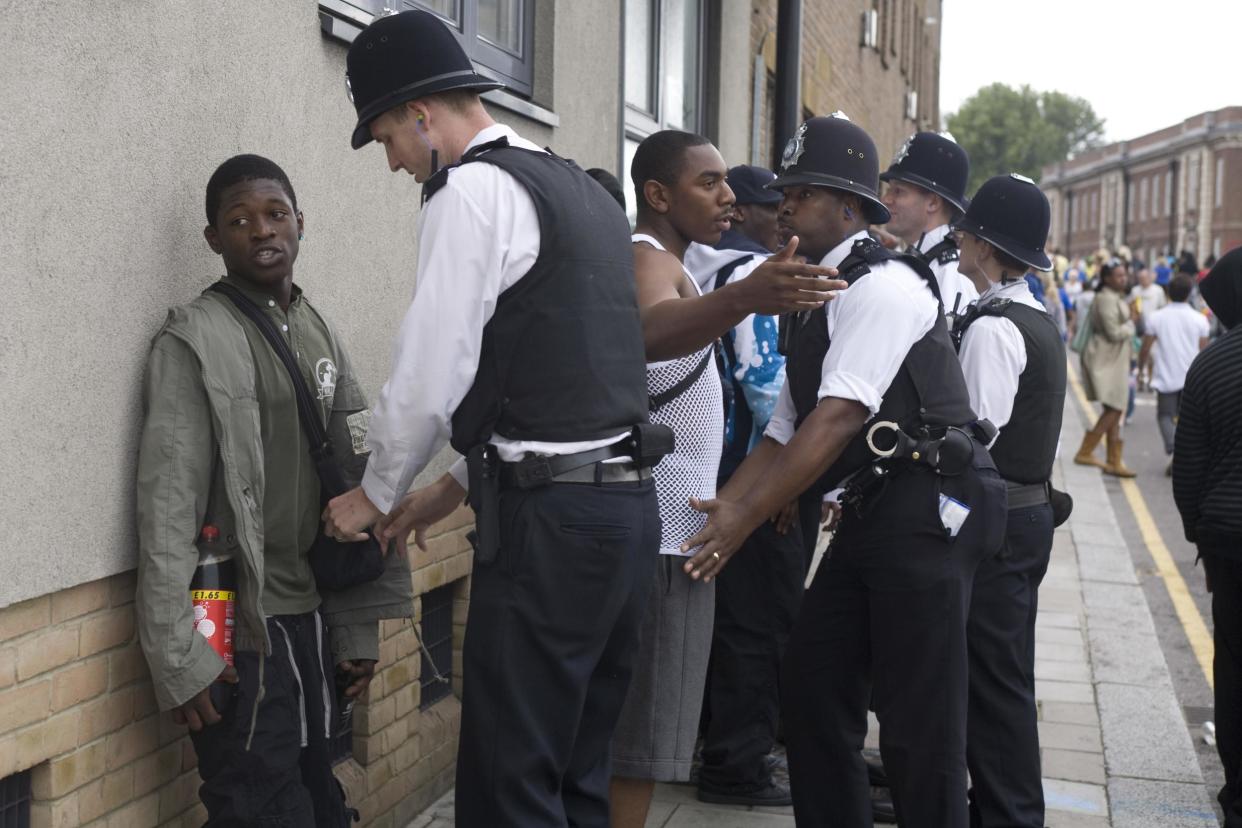The Reader: Not respecting data privacy will harm the fight against gangs

FURTHER to your article “Met gangs matrix ‘unfairly damages young black lives and breaks data laws’”, [November 16], Amnesty International’s online petition against the gangs matrix currently has 12,500 signatures. It was begun in May 2018 and its fourth paragraph begins, “Worse still, the Met Police are interfering with young people’s privacy rights by sharing this data with other authorities.”
The 100 Black Men of London see this as having deep and wide repercussions. It has been said by all sides that trust between the police and the black community will play a key role in reducing crime in our neighbourhoods. But how can we trust the police when something so basic as data privacy is not just broken, but used as a tool against persons charged with nothing?
We understand how difficult the Met’s job is and so we are horrified that incidents like this only serve to make it harder, by destroying what little trust there is and having the inevitable result of continued crime.
We await the fine that the Information Commissioner will impose on the Met. We also await a statement from the Met assuring our communities that such breaches will not be repeated.
Paul Lawrence
100 Black Men of London
EDITOR'S REPLY
Dear Paul
Most disturbing in the Information Commissioner’s ruling was the conclusion that some who should have been removed from the matrix, as well as those only on it because they had been victims of gang crime, were being exposed to the full range of enforcement measures used by the Met to target gang members. Even for those who should have been on it, there appears to have been too much casualness with the way the information was shared and secured.
But despite all this, no one should lose sight of the fact that the matrix, or something similar, remains essential if the Met is to prevent more young lives being so needlessly lost. That is perhaps particularly true for the young black Londoners who unfortunately currently account for the majority of victims of fatal gang violence, as well as frequently being the perpetrators.
The Met certainly must do better. If it can improve, then I hope that organisations such as yours will continue to support its efforts.
Martin Bentham, Home Affairs Editor
Abortion cannot remain a crime in Northern Ireland
This Friday, women across the UK will be waiting with anxiety and fear as their reproductive rights are debated in Parliament. It’s not right that the abortion law treats women as criminals for accessing a service that is freely available to all other women in the UK.
We keep hearing the excuse that abortion in Northern Ireland is a matter for a devolved government. But this is not true. The Government is ultimately responsible for ensuring that the rights of citizens — including those in Northern Ireland — are upheld. Northern Ireland hasn’t had a devolved government in almost two years. Human rights can’t go out of the window in the meantime.
Women in the UK shouldn’t be denied their rights because of their region. An affront to women in Northern Ireland hurts us all. We ask the Prime Minister to do the right thing and champion reproductive freedom, women’s rights and healthcare. Give time for the Abortion Bill and commit to decriminalisation.
Aisling Bea Amanda Byram Anita Asante Baroness Helena Kennedy Bella Freud Bisha K Ali Bridget Christie Bronagh Gallagher Bronagh Waugh Caroline Quentin Claudia Winkleman Claire Foy Dame Harriet Walter Deborah Frances-White Dawn O'Porter Desiree Burch Dolly Alderton Edna O’ Brien Eleanor Tomlinson Elizabeth Uviebinené Elizabeth Day Ellen Jones Emma Freud Emma Thompson Gemma Arterton Gemma Cairney Gemma Chan Indira Varma Joan Bakewell CBE Jodie Whittaker Juliet Stevenson Kate Allen Kate Beckinsale Kate Nash Kathy Lette Kristen Scott Thomas Leomie Anderson Lolita Chakrabarti Lolly Adefope Meera Syal Miranda Richardson Nathalie Emmanuel Noma Dumezweni Olivia Colman Phoebe Waller-Bridge Rachel Parris Rebecca Front Rosie Jones Saffron Burrows Sara Pascoe Sarah Dunant Sarah Millican Sarah Solemani Scarlett Curtis Shappi Khorsandi Sharon Horgan Sindhu Vee Sita Brahmachari Sophie Okonedo Sue Perkins Susan Wokoma Tracey Emin Vanessa Redgrave Vicky Featherstone Victoria Hamilton Dame Vivienne Westwood Yomi Adegoke Zoe Wanamaker
Will the City’s planned ‘Tulip’ skyscraper grow on Londoners?
HAVING seen the proposal for “The Tulip” building I don’t think it resembles one very much [“Tulip to bloom”, November 19].
Initially I thought “sperm”. However, then I saw the video on the BBC evening news, which featured capsules moving on the outside of the bulb and I revised my opinion — perhaps this edifice should be built in Soho instead?
Friso Dijstelbergen
WHAT an imaginative idea to build a giant bud, “The Tulip” — with its spectacular views of London, restaurants, bars and educational facilities — to embody the progressive spirit of the city. But why stop there? Why not build an architectural garden across the capital with a rose to represent its colourful history and a petunia to symbolise the repeated flowering of its culture? And it would also make London architecturally “green”.
Stan Labovitch
Stevenage was ahead of its time
I disagree with Ruth Bloomfield’s article on Stevenage [“We’re getting outta here,” Home & Property, November 14]. It was not, as stated, “badly planned” but a new town designed in the Fifties with six self-contained residential areas and a separate industrial zone. It had the country’s first pedestrianised town centre, opened by the Queen in 1959, which won accolades from planners in the UK and abroad. The new town also featured a large number of segregated cycle tracks, also revolutionary at the time.
Stevenage may be grim in parts today but this is largely due to the abolition of the Stevenage Development Corporation, which owned most of the properties and reinvested the rents in the town, in favour of privatisation, with little planning control.
Stephen Barry

 Yahoo News
Yahoo News 
